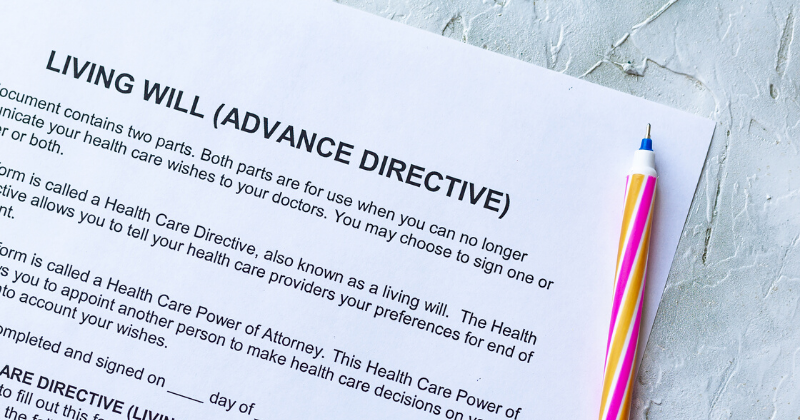
I’ve told my family that I don’t want life-sustaining medical care. Why do I need a legal document that says the same thing?
Congratulations on communicating your medical wishes to your family – many people don’t! Even so, if you become medically incapacitated it will be a very stressful and emotional time for your family. Even though you’ve expressed these wants, in the event of your incapacity emotions are running high and family members may fear that your wishes have changed, or disagree that they should be followed. An advanced medical directive is a legal document that informs family and caregivers how an individual wants their end-of-life care to be handled, assuming that they are unable to participate in their own decision-making.
Living Will
Creating a living will allows you to specify your medical wishes and ensure that your family members understand your health care choices. It is a signed, witnessed legal document that informs your health care provider of your wishes to withhold or withdraw medical intervention and end-of-life or healthcare decisions if you are in a terminal condition or are unable to make decisions about your medical treatment.
Durable Power of Attorney for Health Care
A Durable Power of Attorney for Health Care is a signed, witnessed legal document where someone designates an agent to make health care decisions if they are temporarily or permanently unable to make such medical decisions. A durable power of attorney for health care lasts indefinitely and the person granting the POA authority typically retains the power to revoke it.
Protective Medical Decisions Document
A PMDD is an advanced medical direction protective Durable Power of Attorney for Health Care that is available from the International Task Force on Euthanasia and Assisted Suicide. The PMDD specifically prohibits assisted suicide and euthanasia. The signer names a trusted person to make health care decisions in the event they are temporarily or permanently unable to make such decisions. The Multi-State version of the PMDD conforms with the laws of most states, including Illinois, and are available by contacting the Patients Rights Council at 800-958-5678 or 740-282-3810) between 8:30am and 4:30pm ET.
Do you have questions about medical advanced directives in Illinois? Our experienced estate planning attorneys in Chicago and Lombard Illinois understand applicable laws and advise you on the best options to protect your assets and loved ones. To talk to a trust attorney contact the Estate & Probate Legal Group at 630-800-0112.